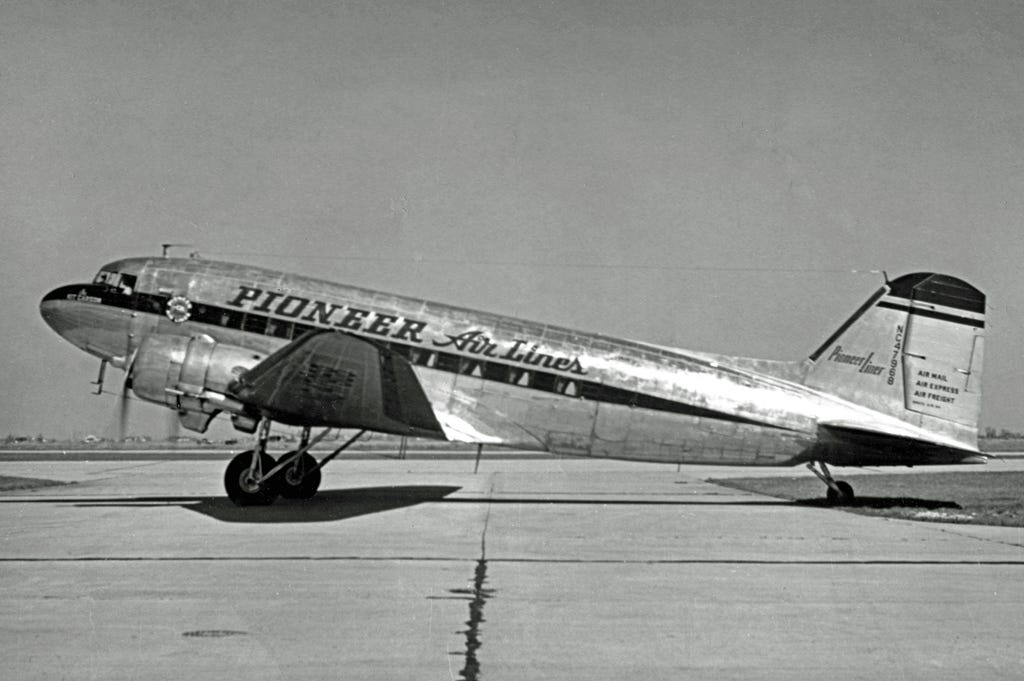What's Wrong with the Airlines (from Fortune Classics, 1946), some things never change
This could have come from yesterday's papers.
Way back in 1946, Fortune Magazine published a story that has uncanny resemblances to today’s complaints about airlines. Everything from airline seats and air traffic control problems to delays and bad airport announcements is covered about the glory days of flying. I guess they weren’t quite so glorious. Airlines were losing money and passengers were complaining. Sounds familiar?
Here is the introduction to the story from the Fortune editors:
Who hasn’t kicked off a summer trip by shuffling through an airport to catch a cramped, delayed flight?Apparently, air travel conditions in 1946 were gruesome too. The airline industry was struggling to keep up with booming demand, and had just discovered the benefits of overbooking. And a plane seat was, “as perishable a commodity as a fried egg or a dry martini.” Indeed.
Here is a quote that could have come from yesterday’s papers.
This beauty and wonder are about the only compensations for airline travel in 1946. To travel by plane, a passenger must now sacrifice his comfort, his sleep, and often his baggage. He must endure inconveniences that rise to the level of punishment. And sometimes he finds he could have got there faster by train.
For the airlines of the nation are in trouble. Boom business has jammed air facilities from the reservation telephones on through the whole system and into the air. The major airports are getting close to the absolute maximum of traffic that can be handled safely.
Lost luggage was a problem way back then, just as today.
The case of the man whose briefcase, containing $50,000 worth of building plans, disappeared from a plane between Reno and San Francisco and turned up days later in St. Petersburg, Florida, is unique only in that the briefcase was recovered. Some airline men believe that there is a great deal of baggage endlessly sailing the skies like the Flying Dutchman, transferred from plane to plane and city to city forever.
And, complaints about the airline seats haven’t changed much.
…the seats themselves are boys’ size — three abreast with a narrow aisle and then two abreast. The plight of the man in the middle seat, with no armrests, beggars description.
Even problems with air traffic control were growing and merited complaints.
When the fog or storms come the aerial rat race begins. Planes must approach the fields on instruments — landings on standard procedure then require from six to twenty minutes per plane. This automatically means a sharp reduction in an airport’s traffic capacity. The airlines’ busy schedule is immediately wrecked; planes and passengers clog the fogbound terminal on the ground; other planes and passengers clog the skies for hundreds of miles in all directions, backing up at distant airports. Only a few of the scores of approaching planes can be landed every hour; CAA’s Air Traffic Control obviously must “stop” the planes in the soup. The result is what’s known as “stacking.”
The story goes on with complaints about everything from airport conditions and telephone reservation systems to airline employee training and low pay for everyone from pilots to stewardesses to mechanics to ticket agents.
Fortune closes its piece with this observation that is still true as we face problems of hidden airline fees, obscure code-sharing agreements and reduced competition because of airline alliances.
Fairly or unfairly, the flying public holds the airlines responsible. Patient and long-suffering today, the passenger is also the U.S. public, and if he gets pushed around too much, he invariably fights back. And he may fight back not by staying off the airlines, but by giving political support to the men who can best capitalize upon his gnawing frustration. In short, the best way for the airlines to keep out of political hot water is to run their business better.
The more things change, the more they stay the same.
Photo: Wikicommons


